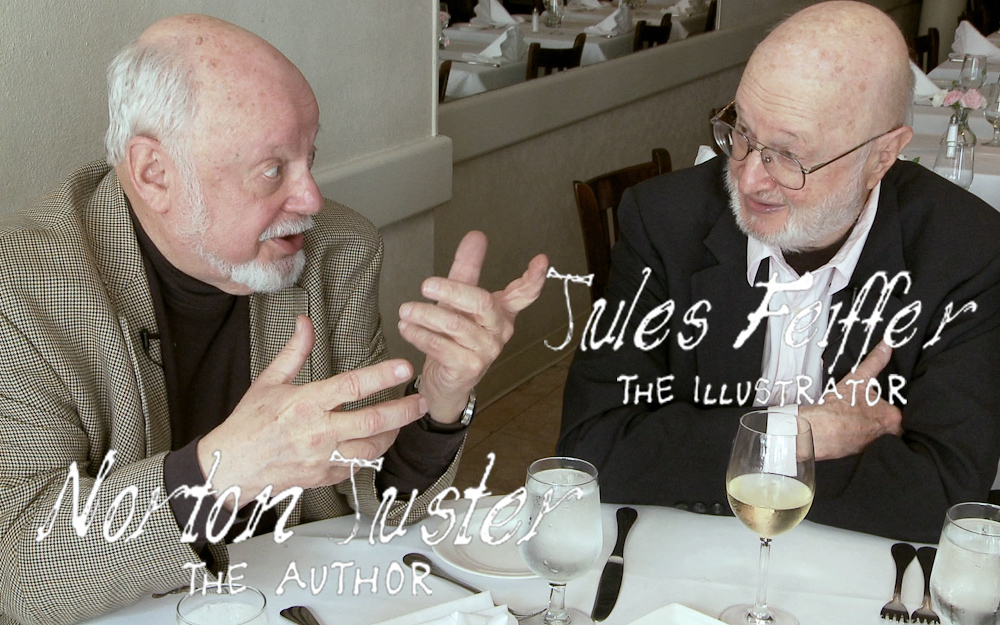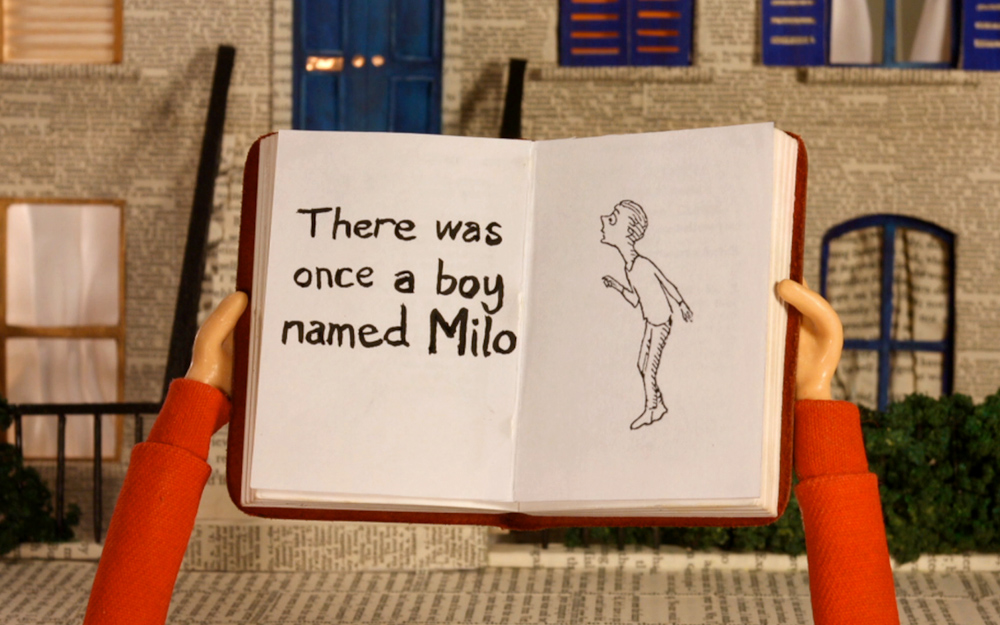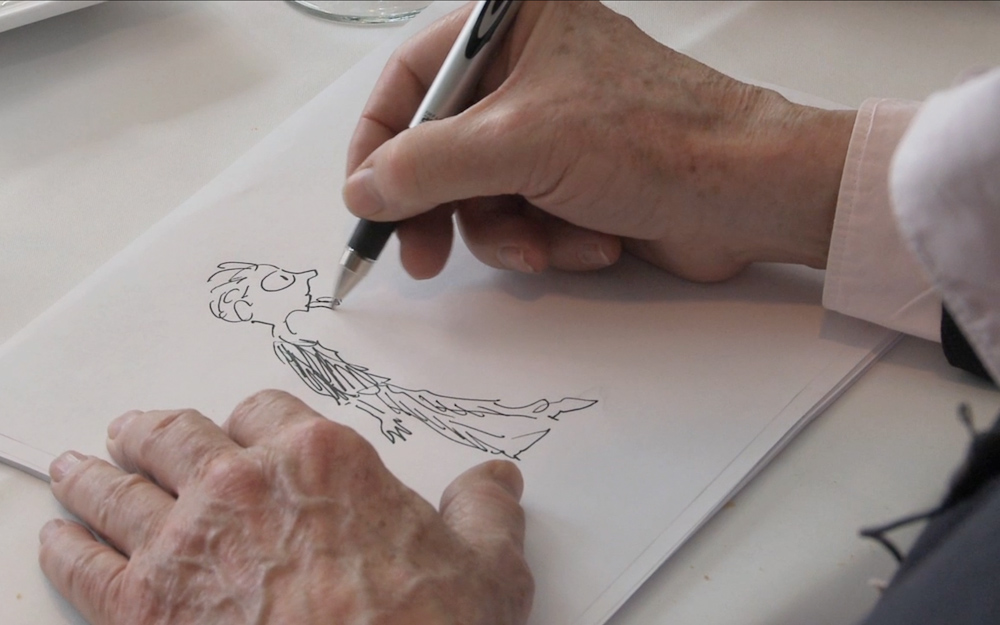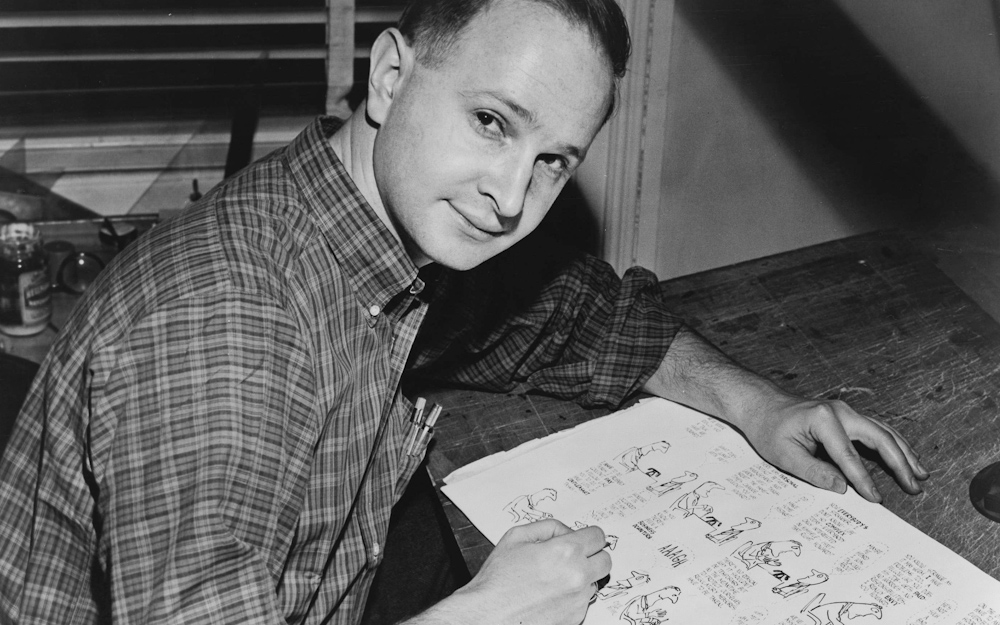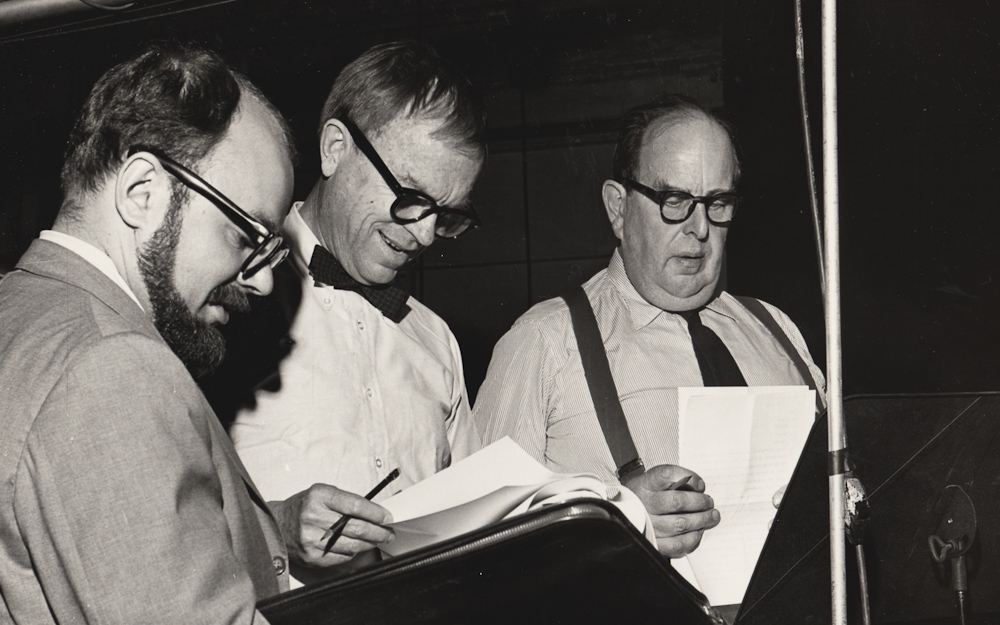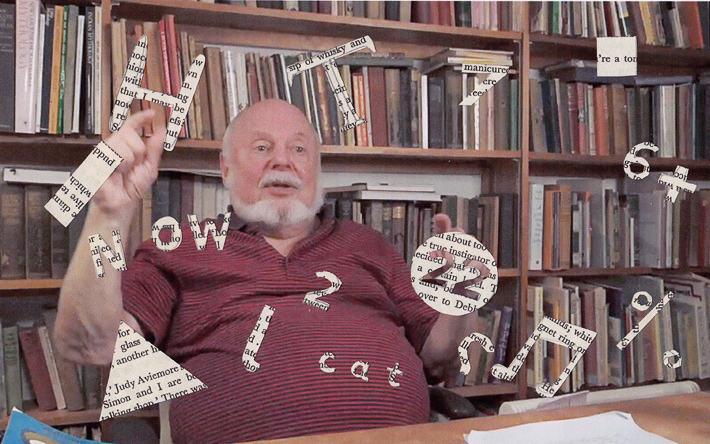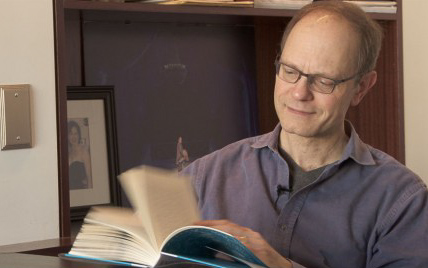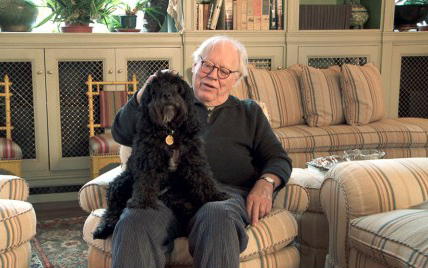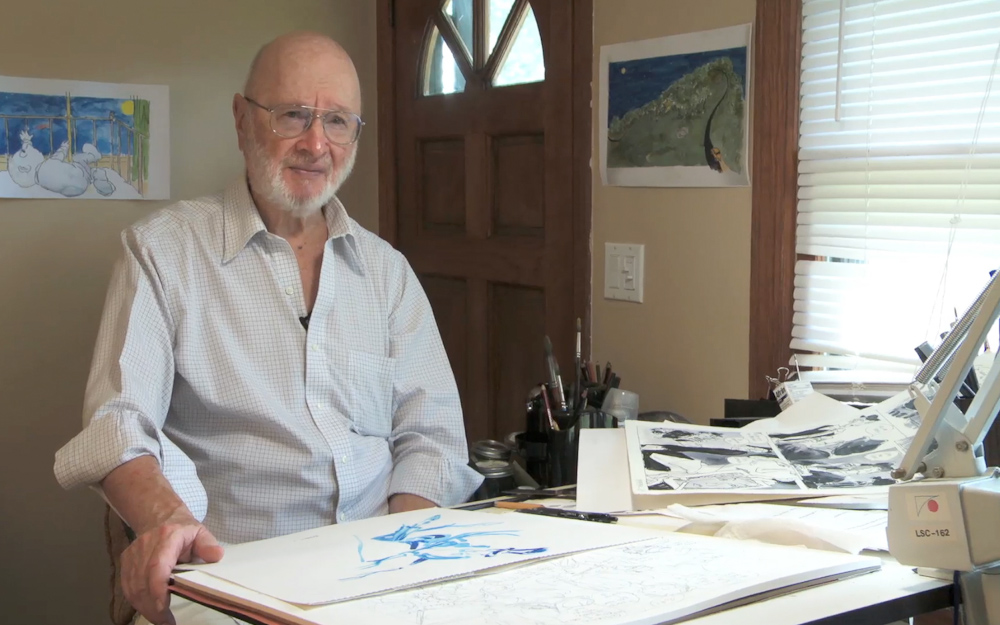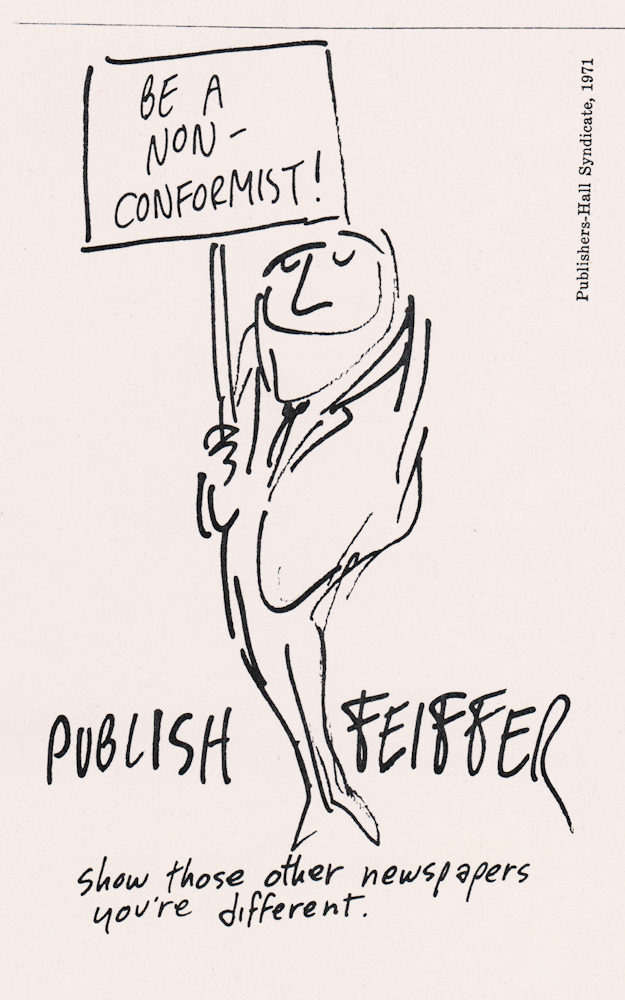“The Phantom Tollbooth: Beyond Expectations” playfully explores the creation, creators, lasting impact and enduring relevance of one of the most universally beloved children’s books of our time. Through interviews, animation and archival materials, the documentary traces the friendship between author Norton Juster and Pulitzer Prize-winning artist Jules Feiffer, and the wit and wisdom of the novel over half a century.
Starting with its opening sequence, featuring actor David Hyde Pierce narrating an animated sequence created for the documentary, the film introduces viewers to the hilarious world of The Phantom Tollbooth, along with some of the novel’s more serious themes. Discover Norton Juster’s word play, watch Jules Feiffer draw Tollbooth protagonist Milo for the camera, and hear children’s author and illustrator Eric Carle reflect on the creative process and New Yorker staff writer Adam Gopnik share what makes the book a classic.
Historian Leonard Marcus, author of The Annotated Phantom Tollbooth, helps place the book – which celebrated its 50th anniversary in 2011 – within a historical, cultural and literary context. Conceived in Brooklyn during the Cold War 1950s, The Phantom Tollbooth is about much more than a bored little boy who travels through a tollbooth to the Lands Beyond to rescue princesses named Rhyme and Reason. The film illuminates the book’s deeper themes: the value of learning, the state of children’s literature, the creative journey and the importance of the written word.
The year was 1961 when Juster and Feiffer, two young unknown artists with no intention of writing a children’s book, came together in a rundown duplex in Brooklyn Heights to create what has been called the “Alice in Wonderland of our time.” Formally trained as an architect, Juster, now in his 80s, describes himself in the film as an “accidental writer.” Longtime friend Eric Carle describes Juster as an incorrigible punster who “is so interested in words and word play, he had to put this down.” Also in his 80s, Feiffer, who was working as a cartoonist at the Village Voice, explains that he had his sights set on overthrowing the government through his political and societal satire. Neither of them expected “the little story about a kid who didn’t like to go to school” to be a defining moment in their lives and in the lives of generations of readers.
In the film, Jason Epstein, the legendary editorial director of Random House, reveals how he published the book against the judgment of others in the business and reflects on predictions that the book would fail because its vocabulary was thought to be too difficult for children and it didn’t conform to the prevailing rules of children’s literature in the 1960s. In spite of these forecasts, the book triumphed and has sold nearly 4 million copies to date and been translated into 20 languages.
Warm, smart and quirky, the documentary is a loving look at a book that, more than 50 years after its publication, continues to inspire millions of readers.
But then again, “it goes without saying.”
